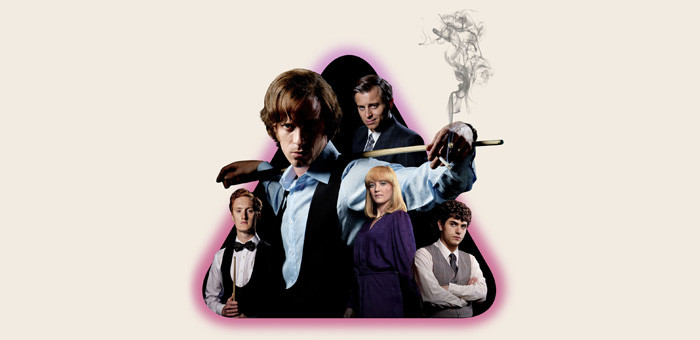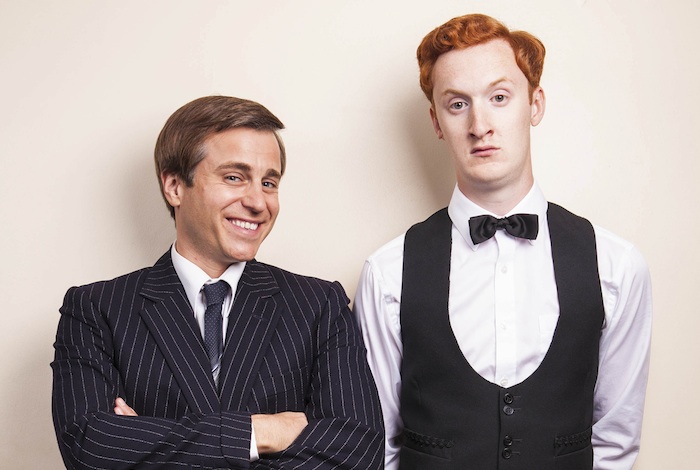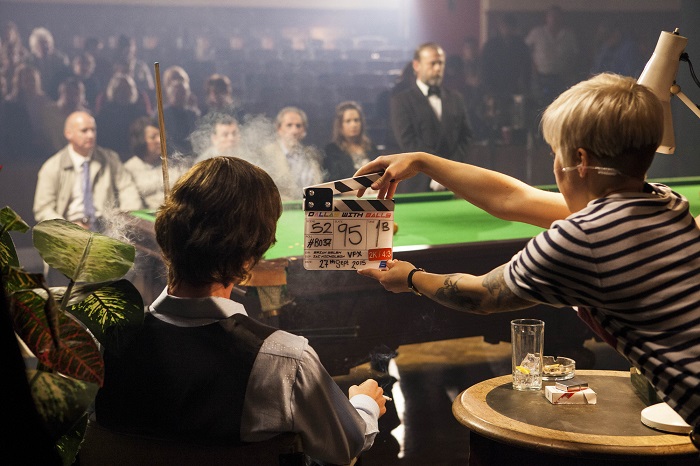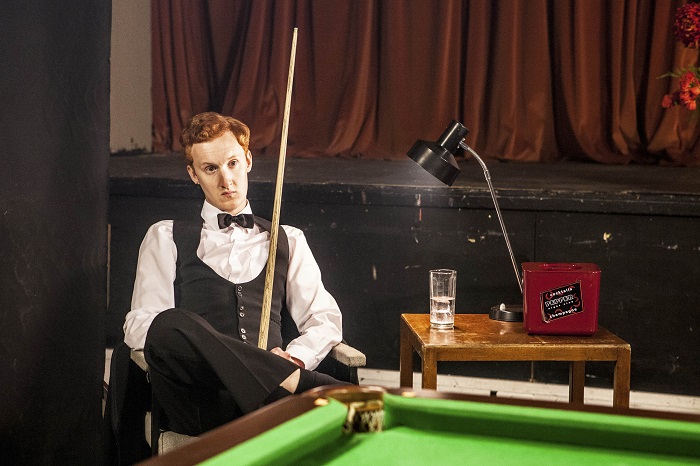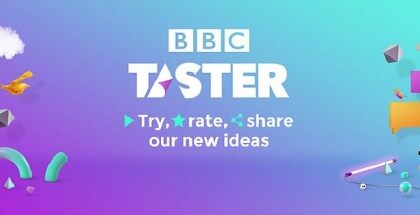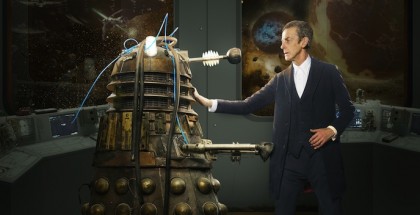The Rack Pack – BBC iPlayer’s Big Break?
David Farnor | On 05, Jan 2016
Almost exactly 30 years ago, Chas & Dave got together Steve Davis, Dennis Taylor and Willie Thorne to record a song called Snooker Loopy. It went to number six in the UK charts. That single is a distant memory for most music fans, but the BBC is hoping that people will go mad for the sport once more this month, when it releases BBC iPlayer’s first scripted feature film, The Rack Pack.
Written by Shaun Pye, it’s the next big step in the streaming site’s evolution from catch-up TV service to fully-fledged digital destination. It arrives hot on the heels of several original shorts starring Matt Berry, an exclusive Gogglebox-style EastEnders series and two experimental non-fiction films, including one about ongoing conflict in the Middle East and one made up entirely of clips from horror movies.
A drama about snooker may not sound much more mainstream than either of those, but, not unlike Netflix’s data-driven tactics, the Beeb has years of viewing figures to prove that audiences still have a thing for the game. In 1985, the climax of the world snooker final broadcast on the BBC in the early hours of a Monday morning was watched by 18.5 million people, which remains a record for a post-midnight audience for any channel in the country.
Part of what helped to capture audiences’ attention was the fierce rivalry between Steve Davis and Alex “Hurricane” Higgins. The Rack Pack follows their battle on and off the baize – a struggle that Shaun still remembers.
“I used to watch snooker with my nan and it was very much the Cavaliers vs the Roundheads thing,” he says, speaking at the premiere of the film in London. “She used to love Alex Higgins and she hated Steve Davis. [Does impression of his nan] Robot! Robot! Boring!”
“20 years later, I got to work with him on They Think It’s All Over,” he continues. “I went back at Christmas and said ‘I met Steve Davis. You know what? He’s one of the funniest, nicest, genuine, warm-heated people…’ And she went ‘I hate him! Robot! Boring!’ It was at that moment I realised if that could endure 20 years then it might make a film.”
“It would be hard for a character like Higgins to succeed nowadays…”
Under the guidance of manager Barry Hearn, Steve dominated the sport throughout the 80s and ushered in a new era of professionalism. That nostalgia for an age of less polished players is a huge part of the movie’s winning charm.
“I thing this is about a certain sanitisation of sports personalities,” adds director Brian Welsh. “I think it would be hard for a character like Higgins to succeed nowadays, you know?”
If the emphasis is on the human relationships, though, Welsh had no plans to shy away from showing the sedate sport on camera.
“I think snooker really lends itself well to the screen, because there’s a psychological intimacy to the game,” he says. “You can really see on the player’s faces how they feel about each other and Higgins at times would be seething with hatred towards Davis and the concentration.
“The first draft of the script didn’t have that much snooker in it because we weren’t sure how we were going to realise it, but it was something I was really keen to bring to it.”
The young cast are certainly up to the task, with Will Merrick making for an uncannily convincing Steve Davis and Luke Treadaway a romantic, tragic rogue in Higgins.
Neither had really played snooker before – although both had their fair share of pool frames under their belts – but the real challenge was learning to play like their characters.
“We had to complete embody their physicality and their technique, which is so alien when you’ve got your own,” explains Will. “I was aching after just a couple of hours of our first training session, moving your body into these odd positions that Steve and the rest all played like!”
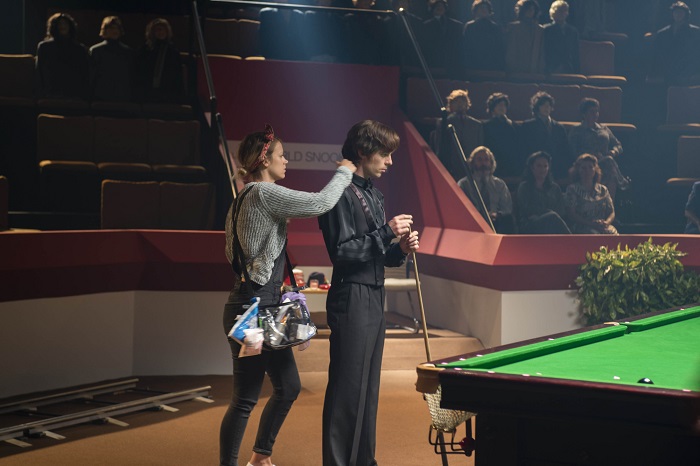
Photo: BBC / Zeppotron / Amanda Searle
“Alex had a sort of grace about him… like a dancer.”
No snooker doubles were used on the production, and that realistic approach pays off in one bravura set piece halfway through, which sees Higgins pot a long run of balls in a thrilling one-take shot.
“We discussed Higgins moving like a dancer and we were really keen to take that sequence, to take the greatest break in snooker history, and treat it like a dance sequence,” says Welsh.
“He had a sort of grace about him, the way he moved, the way he walked around the table. It was like a dancer. Like Fred Astaire or something,” adds Luke.
After three attempts – “We rehearsed the sh*t out of it!” jokes Welsh – they got it in a single take.
Away from the table, both actors are given some equally great material to work with, with Pye combining imagined dialogue with stuff the team had seen or read – and a hefty dollop of Barry Hearn quotes.
“Some of the Barrysism are his!” jokes Shaun.
“I remember TV appearances from Barry when I was a kid,” comments Kevin Bishop, who plays Hearn with a larger-than-life charisma that seems over-the-top – until you actually hear Barry speak in real life.
“I thought in real life he would be more subdued, but he’s more Barry Hearn than Barry Hearn!” adds Bishop. “I wish I’d gone bigger!”
For Luke, it was a case of researching Alex in detail – he “devoured YouTube” – but no one on the film intends the end result to be taken as strict fact. (The climax of the movie, for example, changes events for a more satisfying denouement.)
“It’s not a historical document…”
What is the reaction of Higgins’ family to the piece? Brian says they’ve “made contact” with Alex’s wife, Lynn (played by Nichola Burley), but she hasn’t seen the film yet.
“There are so many conflicting stories about different, you know, there are scenes where if you listen to Lynn, it’ll be one version, if you listen to Alex, it’ll be another,” comments Luke. “It’s not a historical document. It’s a way of leaping off and saying let’s tell a story of these people’s lives.”
Indeed, there was no interaction between the cast and their real life characters throughout the production (“I think it would be unfair to Luke if the others were able to engage to that level,” offers Brian), but producer Barney Reisz did travel all the way to Romford to meet Steve.
Hearn (in the audience at the premiere) wastes no time in piping up to praise the project’s accuracy.
He describes it as “surreal” and “brutally honest”, with “fabulous characterisation”.
“You don’t know ’cause you weren’t there but you all completely captured the mood, the feel, the personality,” he says.
“The idea that iPlayer is just the place where you go to catch up… isn’t really true anymore.”
As the debate over who was better, Higgins or Davis, threatens to rear its head once again, one clear winner is BBC iPlayer, which continues to grow in stature. In the six months to September 2015, iPlayer’s original commissions racked up over 29 million requests from viewers – and The Rack Pack is hoped to be another decisive ball in the hole.
“I don’t really watch stuff when it goes out anymore. We all watch catch-up television,” observes Shaun. “The idea that the iPlayer is just the place where you go to catch up on stuff from proper television isn’t really true at all anymore.”
Like Charlie Shackleton, who directed Fear Itself, iPlayer’s most recent non-fiction feature, both Shaun and Brian praise the online service for offering more creative freedom than traditional TV.
“I think more and more people seem to be watching really high quality content on various different devices and having worked in shows on the main channels, there was a creative freedom afforded on this that was just a gift,” adds Brian. “The ambition was to make a proper film, regardless of what device that it’s screened on.”
“Were we making this for BBC Two or BBC One or whatever, we’d have to fill an hour slot most likely,” agrees Shaun. “I think our original draft was probably 100 minutes or something. With BBC iPlayer, we could go in knowing the film could be exactly the length it needed to be and as a result it’s a better piece of work.”
Britain going Snooker Loopy might be a bit of a stretch in 2016, but as the Beeb prepares to move the whole of BBC Three to the web, The Rack Pack could be exactly the big break that the broadcaster’s innovative digital arm needs.
The Rack Pack is available to watch online exclusively on BBC iPlayer.
All photos (unless otherwise stated): BBC / Zeppotron / Emilie Sandy


